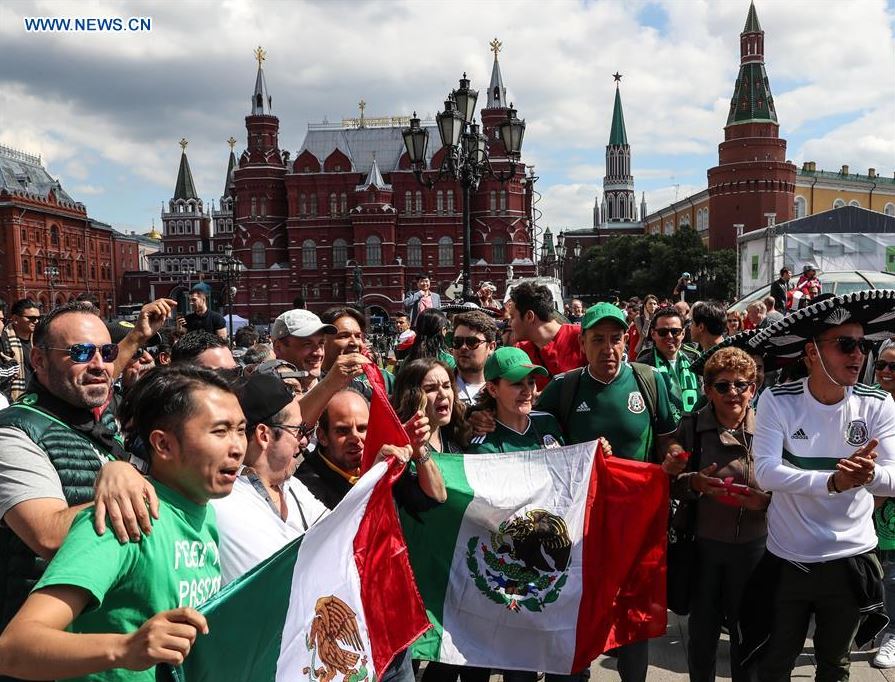
Just this week, it was announced that Canada, Mexico, and the US have been jointly selected to host the 2026 FIFA World Cup. The World Cup is likely to promote prosperity to the host countries and can be used to encourage peace across all people.
Controversy has always surrounded the World Cup, since fans have been known to riot following a loss or even a win for their home team. These numerous riots have resulted in vandalism, rape, theft, and even murder.
The World Cup shines a very bright light on its host country and can sometimes highlight some very unsavory details. The 2014 World Cup in Brazil was the subject of major controversy surrounding the safety of its construction efforts – which includes multiple deaths, a monorail collapse, a bridge collapse, and a fire. Thousands of families in Rio de Janeiro were also displaced from their comes in order for redevelopment in the area, which lead to massive protests.
One of the worst instances of violence linked to the World Cup was the “Soccer War” – which was a brief war fought between El Salvador and Honduras in 1969 during a qualifying round of the 1970 tournament. However, it should be noted that the war was not caused by the match itself, but instead had root causes in immigration and demographic problems between the two countries. The violence took place because of political and socioeconomic problems; the World Cup was just a means to an end.
The fact is that the World Cup can sometimes bring out the worst in people and their governments. It can be used to send a powerful message to the world and it can also be corrupted just like any other event.

Fans of Mexico's team pose for photos near the Red Square in Moscow, Russia, on June 13, 2018. The 2018 Russia World Cup will kick off on June 14. (Photo: Xinhua/Yang Lei)
What truly matters about the World Cup is the peace and prosperity it can bring to people around the world. The tournament itself is meant to be a form of goodwill between nations – bringing together people from around the globe based on a common interest. Its overall goal is to boost the idea of teamwork and to have countries drop their differences in the name of peace.
The World Cup has, in the past, even stopped violent conflicts around the world. In 2005, the Ivory Coast’s national soccer team helped secure a ceasefire when its team captain, Cyril Domoraud, begged his fellow countrymen and women to “not descend into war like this.” Domoraud took the time to speak on this subject following his team’s qualifying win to join the 2006 World Cup.
The country’s civil war had been carrying on for three years at that point, but Domoraud’s words actually helped convince the government and the opposing New Forces regime to settle its differences. In early 2005, the two sides signed a peace agreement and the war was over. While the area has not been without its problems since that day, it was still an important moment for the Ivory Coast since it showed that the World Cup could cause major positive changes and save thousands of lives.
This year, Mexican fans descended on Moscow and mingled with “soccer/football hooligan” fans; handing out sombreros and taking photos with people from all over the world, as reported by RT.com. Social news website Reddit even captured an instance of Mexican fans lifting a wheelchair-bound Egyptian fan above the crowd so that he could have a better view of his team on the field.
Some people tend to focus on the negative aspects of hosting such a large event – that it creates overcrowding, waste, and sometimes crime.
However, the aforementioned instance is a perfect example of the World Cup’s true spirit. The World Cup is a time for good sportsmanship, pride, and friendship. It’s a time where people living on the opposite sides of the world can share their common interest.
For North America it represents a time of cooperation as America is in the midst of a spat with Mexico and Canada regarding trade tariffs. With any luck, preparations for the next World Cup will force representatives from the three nations to work together and help rebuild its tarnished relations.
In addition to building international relations – all three countries have the opportunity to prosper financially from hosting the World Cup. When the US hosted the World Cup in 1994 in Los Angeles – the total economic profit was $623 million and provided thousands of jobs to Californians during the planning and duration of the event. In comparison, that year’s Super Bowl only posted a profit of $182 million. Hosting the World Cup also helped the US form Major League Soccer in 1996, which has had many ongoing benefits.
If anything, the economic benefits of the World Cup are akin to hosting the Summer Olympic Games. Many countries that have seen major profits when hosting the Olympics and these same countries can reap the same benefits if they host the World Cup. Although China has never hosted the World Cup, it is favored to host in 2034. Since China has the infrastructure and proven track record for hosting such a large event, the World Cup could bring a great deal of prosperity to the country and its people.
The World Cup has the opportunity to be a major blessing or a disaster for the entire world – and more often than not, it has proven to be a boon to society. What matters is the attitudes of fans and the governments in charge of setting up the tournament, because their actions will have lasting effects for years to come.


